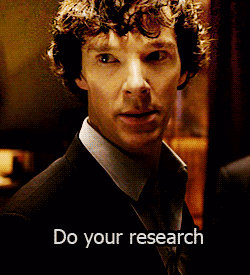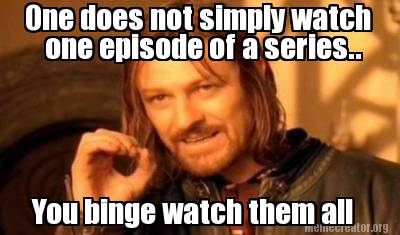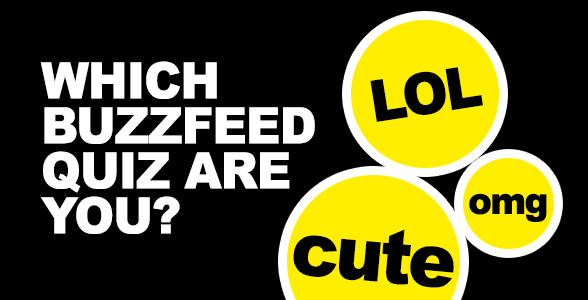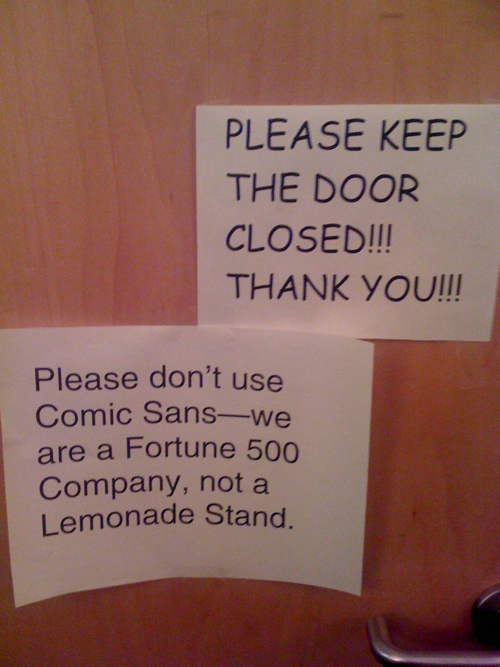Sunday, December 28, 2014
[GUEST POST] Student Affairs is Validation: #SAReflects
Hello everyone!!
As most of my consistent readers know, this has been a fun, active, and invigorating year of growth for me! I am so thankful for 2014 being a year that I desperately needed for my personal and professional growth.
The great people at the Student Affairs Collective asked me to write a reflection blog post about my year. So I did!
I decided to write about how the year 2014 was full of validation for me, which has made me feel so at home in this field. I could not have asked for a better field to enter.
As usual with my guest posts, I want to spread the love to the original posters, so make sure to head over the the Student Affairs Collective website to view the FULL ARTICLE!
Here are some of my favorite pieces from the bog post I wrote, called, "Student Affairs is Validation."
Hope you enjoy!
"Many individuals pursue a career to reinvigorate an industry.
Many individuals pursue a career that influences the lives of the current or next generation.
Many individuals pursue a career that does both of those things, while making the individual feel validated that their work and purpose is important."
"Becoming a leading voice in this online community has been such a brilliant form of validation because I feel that many grad students now have a space to call their own each week. I am glad that I was given the opportunity to create this space. I am glad that each week my colleagues are able to validate each other’s experiences and share something new about themselves and their life as budding student affairs professionals."
"I never knew how validating having a partner in student affairs would be for me—until I had one.
Since we come from very similar backgrounds—white, low-SES, first-gen—we are able to have some very empowering conversations of how we hope to work together to support students from similar backgrounds. We are able to validate each other’s experiences and feel as though we are not alone in this field."
"The recognition I speak of is when I won the NASPA Region 1 Richard F. Stevens Award for Outstanding Grad Student in the state of Massachusetts. When I heard my name read, all I felt was validation. A year of hard work, dedication, and late nights had paid off in this form of recognition. I was completely honored and blown away by the support I received through winning this award."
"So validate your co-workers, your colleagues, your partners, your friends, and your students!
Make people feel like their work is important and be grateful for the effort people in your office put into their daily lives. One small “thank you,” or “good job,” or “you’re doing great” can change any one’s day!"
Again, Click here for the full article!
I will see you all again very soon as I prepare to write about my top albums of 2014! January is definitely fulled with music posts, so get ready for that fun stuff!
Be well and enjoy the new year!
-Craig.
Tuesday, December 9, 2014
Home is Where the Hard Conversation Lives...
Discussing Racism, Privilege, and the (White) Elephant in the Room
Regarding the Ferguson/Eric Garner Discussion—Challenging & Supporting White Students
So, I
started three other ideas for blog posts before deciding that I needed to write
something about the current state of student affairs work in the
post-Ferguson/Eric Garner grand jury decision discussions.
This
topic has permeated our work as student affairs professionals because many of our campuses are now serving as beacons for discussion,
activism, and demonstrations.
Even
many of our student affairs colleagues have written about this topic and how it
shapes our work and the ways in which we can support our students of color on campus.
And that’s awesome. I think this is a
powerful time for our field to step up like this and become leading voices in
the conversation on racial injustices in our country.
And yet,
there is one facet of this conversation that I want to focus on: Challenging and supporting our
white, socially just students that simply want to show their support, but have difficult
(i.e. uneducated and/or racist) home lives that challenge them from moving
forward in their journey of social justice education.
I am
going to share a personal experience, talk about getting to TA this semester through the model of Challenge & Support,
and then explain my philosophy of how to support white students during this
time.
(Note: This post is IN NO WAY meant to discredit the other very real racial work happening on our campuses and in society today. If you read it with that lens, I challenge you to read this again. At no point is that my intention. This post is merely meant as an extension of the larger conversation. One that I think some of our students need to hear/can relate to.)
 |
| Ferguson is quite the taboo topic right now. As is an discussion white students as well. How do we support them? IMAGE: Michael Ramirez (Investors Business Daily) |
PERSONAL CONTEXT
I was adopted into a white, low-SES, uneducated, and slightly
racially ignorant home life.
Having just turned 27, my closest sibling is NINE years older than me—with my oldest sibling being 50 years old. I am the only person in my family to attend college, let alone graduate from college
and/or even understand the concept of graduate school. Therefore, as the youngest
person in my family, I am the only one with any understanding of how the
academy works. And, by extension, how privilege works.
This is quite challenging—as you
could imagine.
However,
it is never more challenging than when the holidays come around. I basically
have no support when it comes to virtually any conversation whatsoever. And the
scapegoat that my family ALWAYS retreats to is the fact that I’m young(er than
them). I mean, I’m 27. I feel I’ve been an adult for a while now.
Now, I
assume there are many white students, and white student affairs professionals, that
have to go home during the holidays and listened to their “old fashioned”
relatives explain why Obama is Hitler, how the liberals are destroying the
economy, and how the gays are killing the sanctity of marriage—yes, ALL of
these are conversations I have recently had with my relatives.
And it’s
hard to listen to your family members say these things, or often worse things.
Because when we are in the early stages of development—diffusion, as Marcia
might explain it—we don’t question these things. We just accept them.
However,
for those of us who develop into free-thinkers—those of us with a little bit of
social justice education—we don’t like to keep out mouths shut. So we argue, or
we get frustrated and things get tense during the holidays.
It’s
always like this for me at home.
And I
live over 3,000 miles from home, which makes it even more difficult for me to
make the trip. Regardless, each visit goes something like this:
- Relative
says something racist/homophobic.
- I get
frustrated and challenge them.
-
Relative says something equally alarming while trying to explain they aren’t
racist/homophobic.
- I get
frustrated at their explanation and explain how it is racist/homophobic.
-
Relative calls me young and/or pretentious and that my education is a waste of
time.
- I
realize this conversation is a lost cause and leave to play with my nieces or
nephews because they don’t talk about political stuff.
Essentially,
going home is hard for me.
And the thing
is—I know I am NOT alone in this experience.
Many
students experience this!
Many of
my colleagues experience this!
My
partner and I have been talking about this for weeks!
So what
do we do for our white students that still don’t have the tools to question
their relatives or even engage in meaningful conversations with their peers?
.jpg) |
| Image: Steve Breen (U-T San Diego) |
CHALLENGE
With seemingly
everyone in the nation discussing the Ferguson/Eric Garner grand jury
decisions, we, as educators, are in a difficult situation because many of our
students are looking to us for answers/guidance.
This
semester was my reentry into teaching, as I stepped back into the classroom (I taught
High school in a past life) to TA for UMass Amherst’s Education 115 course,
Embracing Diversity—which is essentially a Social Justice 101 course, as you
can hear some of our students explain in a video I’ve linked at the end of this
post. (Note: This classroom context is
simply an example of how I practice my approach to educating and supporting white
students on these issues. I have many other examples I could use to discuss how
I do this with the students I advise as well.)
In being
able to TA for this course, I was given the opportunity to educate students on
social justice topics like race, class/socioeconomic status, sexual orientation,
gender, privilege, white privilege, oppression, Ray Rice and sexual assault,
and even the Ferguson/Eric Garner cases.
The
catch of all of this was that I was the only white male TA (of five TAs)
teaching the whitest and most male-populated discussion section for the course—88 percent of my classroom was white, over
60 percent were men. I had four Asian students (all women) and one Latina
student in my class. The other 35 were white.
I had a
classroom full of students from all over New England—two from New York, and one
lone student from Georgia. All of these students brought vastly different
perspectives on many of the topics we discussed.
However,
what I ultimately found was not shocking,
but it is something we might take for granted since we have social justice
conversations almost every day.
I will
try my best to be as clear as possible:
MANY OF OUR WHITE STUDENTS
HAVE NEVER HAD TO THINK ABOUT
THIS SHIT!
 |
| Campuses have always been incredible landscapes for activism. |
We
cannot assume all of our students are in the same place developmentally OR that
they will agree with or absorb everything you teach them. That’s not how
learning and/or development works.
You aren’t going to change a
student, who was raised in a racist home, that racism is bad by simply telling
them that racism is bad. They’re just going to go home—where racism is
practiced—and not think about racism being bad anymore.
These
topics MUST be broken down carefully over time.
That
being said, I made it my purpose for the semester to teach my 40 students about
the realities of the world around them. I constantly told them, “you’re already
ahead of me by being in this class,” because I didn’t have my first privilege
conversation until I was 23. I wanted my students to understand that white
privilege is not something to feel guilty about—it’s out of their control—what they
need to do is understand how their privilege functions in society so they can become
better allies/advocates for change.
I took
this one hour out of the week to do things like ask my students to Google the
phrase, “race is a social construct,” and then they would report their findings
and we would discuss how this affects them at a predominantly white institution.
I would challenge my students to think
critically about the world around them instead of simply regurgitating all of
the information they’ve been fed throughout their entire lives. It caused
for some awkward silences, but we pushed through it as a class.
One of
the first activities I did with students was the privilege walk.
(Note: You can click link for an example of how to do the privilege walk.)
If you
haven’t done the privilege walk with your students, I suggest you to do so. I
make my own list of phrases for them to respond to (e.g., starting with "If you are a man, take a step forward," and later using "If you are a woman, take a step back."), with the caveat that they
aren’t allowed to look back until we’re finished. When completed, this
activity demonstrates to students that most, if not all, of their privileges are invisible.
Another way to do this is with an exercise called, "Step in, Step Out," in which all students create a circle and step when they can agree with the statement being read. This is often an equally apt way of demonstrating the privilege and inequalities in your group. I chose the privilege walk simply due to the massively white class that I had.
Another way to do this is with an exercise called, "Step in, Step Out," in which all students create a circle and step when they can agree with the statement being read. This is often an equally apt way of demonstrating the privilege and inequalities in your group. I chose the privilege walk simply due to the massively white class that I had.
I had my
four lone Asian students and the Latina student (reminder: all women) in the
back of the class. When I asked one how she felt being there, she responded,
“I just stopped even trying to move forward. Because every time I did, I would have to take another step back. It made me want to give up.”
This
resonated powerfully with the rest of the class, which was all white, and
demonstrated to them where they might stand in relation to the rest of the
students in their institution, since UMass Amherst is a predominantly white institution. Her reaction is also another reason why some might opt to utilize the "Step in, Step out" activity instead of the privilege walk.
Moving
forward with the class was a much easier task because this was the first time
many of my white students had ever had to think about their privilege or their other
dominant identities.
Making the effort
to discuss these issues in a very approachable and intentional manner with my students
made a major impact on them this semester. Many of them commented on my individual
course evaluations that learning about white privilege and racial oppression
were two of the major topics that challenged their thinking this semester.
Reading
through my evaluations made me happy because I could tell that some serious
change happened over the course of 14 weeks.
But now
they are no longer my students—so I worry about where they go from here.
SUPPORT
On
Thursday, the final day of class, I addressed the upcoming holidays amid a
larger conversation about Ferguson and Eric Garner. I told the students that I
had a very difficult conversation with my parents about the grand jury
decisions, in which I challenged my parents on their stances—which caused my
mother to hang up the phone on me.
Some of
my students explained that they encountered some difficult conversations with
family on their recent Thanksgiving visits home.
I asked
them how they handled the conversations. A number of the students said they sat
there listening, trying to think about how to respond—using their knowledge
from this course. Others said that they challenged their family for the first
time and it felt empowering, while also scary because they were met with
similar responses that I receive from my family.
On that
last day, I told my students to not be
silent.
I told
my students that it is okay to challenge the views of their friends and family.
On that last day, I also told my students the importance of picking their battles and to recognize there is a time and place for everything.
On that last day, I told my students to speak out against
injustice and prejudiced if they ever encounter it on or off campus.
On that
last day, I told my students to always
question the world around them.
Be
curious. Discover their own knowledge.
On that
last day, I explained that since race is a learned social construct, racism is also a learned social construct. Therefore, we
have the power to unlearn these constructs.
On that
last day, I gave my students an example of a conversation I had with my sister—in
regard to some of my father’s remarks one year.
Sister:
You can’t teach an old dog new tricks.
Me: But
you can teach a dog to not be racist.
While
they laughed at this example—because I’m hilarious—I made sure to bring it back
to a very real feeling that what many of our white students are fed from their
families can cause a lot of cognitive dissonance.
On that
last day, I told my students that I
struggle with these topics with my family all of the time, but that doesn’t
mean I give up on my family. I love my family. I just have to separate
myself from their reality in order to spend time with them, which comes with time.
On that
last day, I told my students to change the subject or lay down ground rules if
they don’t want some things being discussed—or to simply leave the room. I have to do this often while at home.
It saves me from some tears or from shouting various obscenities. Or to simply
save face.
On that
last day, I told my students that they might get conflicting information or
confusing articles thrown their way, and that’s natural. There is always going
to be doubt with every major issue that happens in our country.
That doesn’t mean we can’t
question everything.
 |
| I'm not sure what will come of this, but I do know that we cannot do nothing. |
CONCLUSION
I hope
this post demonstrated some ways in which you can support white, socially just
students that just want to be allies/advocates on their campuses. Keep in mind
that many of these students might come from homes that either aren’t very socially
just, or just aren’t open to discussing these bigger topics.
Also
remember that my classroom context might be somewhat of an anomaly, but with as
much student leadership training that happens on a college campus, I can assure
you that there is somewhere to fit in my suggestions.
Naturally
there are going to be many white students that will come to you looking for
some sort of guidance when they possibly fear going home (like I often do) or simply supporting their fellow students of color on their campus. I suggest giving them space to talk just as you would any student.
There is bound to be a lot of confusion, frustration, and probably anger toward
their home situation. Be there for all of your students, regardless of race.
I don't want the work we do educating white students to be for nothing. And you shouldn't either. We need to support our white advocates so that they can educate their families and possibly inspire new tricks in some old dogs.
If we
are able to affect and educate today’s white college students that come from
historically racist backgrounds, we can potentially alter the course of history.
If we can educate on the realities of prejudice, oppression, and injustice in
this country as early as possible, who
knows what sort of impact we can have as student affairs professionals?
In order
to support these students, we need to consider our entire student populations
when moving forward in how to approach these large racial issues.
I
recognize that my approach/philosophy will not resonate or even work for all
students and/or professionals. I don’t expect it to do so. However, I do expect
that we can support all of our students as valued members of society and
recognize that they all come from varying backgrounds that may require us to read
and flex according to the needs of each individual.
Thank
you for reading.
I hope
this helped in some way.
-Craig.
BONUS!
Here is
the video that three of my classmates and I put together with the support of
our EDUC115 students in response to their learning throughout this year. Check
it out!
Monday, November 17, 2014
[GUEST POST] Men, music & mental health: #MenInSA
Hi everyone!
I was asked by the folks at The Student Affairs Collective to write a quick blog post about an aspect of masculinity for their November #MenInSA series!
I decided to write about a topic that I love: music.
I expand upon my views of how mainstream music and its messages perpetuate harmful masculinities for men who may need something deeper in their music. So I explore the beauty and necessity of emotional music.
Click here to access the full blog!
Here is a quick preview:
"When I was in high school—and didn’t have the wherewithal to discuss my depression issues—I turned to music. I would ugly cry into the darkness of my parent’s bathroom mirror while listening to The Weak’s End, by Emery because they made my emotions and my feelings make sense.
Music made sure I didn’t feel alone.
Instead of trying to discuss my “struggles” with my parents or friends—seeing as I felt couldn’t because I didn’t want them to think any less of me—I retreated to music because I was afraid to share my emotions with people.
Music didn’t judge me for having feelings."
&
"I find that these mainstream radio messages also stifle male development. Naturally, men are always at different stages of development. But men aren’t taught how to question these messages.
So where is the space for men to question these messages?
Where can men go when they don’t want this lifestyle?
I say we create this space on our campuses.
Messages of mainstream music are just distractions so that men are kept from discussing the actual issues that may trouble them—possible depression, anxiety, suicidal ideations, and/or the loss of a loved one. So, instead of seeking support or intervention for their possible mental health issues, we have an allegiance of men repressing themselves further into oblivion."
See you all next time!
-Craig.
I was asked by the folks at The Student Affairs Collective to write a quick blog post about an aspect of masculinity for their November #MenInSA series!
I decided to write about a topic that I love: music.
I expand upon my views of how mainstream music and its messages perpetuate harmful masculinities for men who may need something deeper in their music. So I explore the beauty and necessity of emotional music.
Click here to access the full blog!
Here is a quick preview:
"When I was in high school—and didn’t have the wherewithal to discuss my depression issues—I turned to music. I would ugly cry into the darkness of my parent’s bathroom mirror while listening to The Weak’s End, by Emery because they made my emotions and my feelings make sense.
Music made sure I didn’t feel alone.
Instead of trying to discuss my “struggles” with my parents or friends—seeing as I felt couldn’t because I didn’t want them to think any less of me—I retreated to music because I was afraid to share my emotions with people.
Music didn’t judge me for having feelings."
&
"I find that these mainstream radio messages also stifle male development. Naturally, men are always at different stages of development. But men aren’t taught how to question these messages.
So where is the space for men to question these messages?
Where can men go when they don’t want this lifestyle?
I say we create this space on our campuses.
Messages of mainstream music are just distractions so that men are kept from discussing the actual issues that may trouble them—possible depression, anxiety, suicidal ideations, and/or the loss of a loved one. So, instead of seeking support or intervention for their possible mental health issues, we have an allegiance of men repressing themselves further into oblivion."
See you all next time!
-Craig.
Monday, October 27, 2014
17 Things You Shouldn’t Include on Your Resume
A comprehensive list of that which you need not include
Tis the season for folks applying to graduate school and
folks in their second year of grad school to fine tune their resume in time for
their respective searches.
With this, I wanted to supply some fun suggestions for elements
you may not want to include.
I know, I know—some of the things on this list are going to
be quite tempting.
But you must resist.
[NOTE: I shouldn’t have to say this, but I will anyway—THIS IS SATIRE!
I would never suggest you place any of these things on your resume. I’m just
having some fun.]
1. Years of Experience
Watching Netflix
Binge watching Netflix could be a full-time job.
However, Orange is the New Black, House of Cards, and the
Walking Dead won’t get your foot in the door with employers.
2. Using Exes as References
Sure—they are probably the most likely to provide an honest
answer about your character. However, it is probably in your best interest to
list former supervisors or anyone else you haven’t slept with/may want revenge
for breaking up with them unexpectedly. Just a thought.
3. Results to EVERY Buzzfeed
Quiz You’ve Ever Taken
No employer is interested in knowing that you are a cheese
pizza, or that the 90’s song you exemplify is “Wonderwall,” by Oasis, or that
you are 97% Midwestern.
Only list the relevant Buzzfeed Quiz results—like which
One Direction member you are.
I'm the tall one
I don't care.
4. List of Previous Novels
Read for Fun
HAHAHAHA! You think we read for fun anymore?
But seriously—I read “War all the Time,” by Charles
Bukowski.
Because I dig drifter poetry. HIRE ME!
5. Relevant Professional
Affiliations do not include Sports Organizations/Teams
I'm sure my New England friends would disagree with this one. But trust me! I want to list all of the relevant professional
wrestling factions I follow—WWE, WCW, ECW, TNA, CZW, PWG, CHIKARA, ROH—but I will reluctantly
refrain.
6. List of Celebrities You
Would Want To Portray You in an Autobiographical Biopic
 |
| Spot. On. |
Kevin Bacon—no, wait!
Jim Carrey—yes!
Nailed it.
7. Ability to Cook the Best
Top Ramen is NOT a Relevant Skill
Trust me—employers will more than likely assume this…
After all, grad students are often gods of three-minute
meals.
8. Ability to eat two
dozen hot wings is also not a relevant skill
Unless you did it on the Blazin’ level at Buffalo Wild
Wings.
Maybe then you could include it.
Because that’s an accomplishment.
9. PRs at the Gym
 |
| Unless you're the Rock. If so, always list your PRs. |
Sure, some job descriptions may list that you must be able
to occasionally lift 25lbs or so—this does not mean you have free reign to list
your weight room accomplishments, BRO!
10. Your Fastest Mile Time
Sure, you will probably have to run some errands, run to meetings, and run to catch the train. However, unless your time beats my fastest mile (5:53), you should
probably just skip placing this on your resume. And if you’d like to challenge me
to a foot race, BRING IT ON!
I’M NOT AFRAID OF YOU
11. Section for a Catalogued
List of your (impressive) Record Collection
 |
| This essentially qualifies as Erotica for me. |
I mean, I might include this in size 8 font because employers
MUST want to know I have a second press of Pink Floyd’s “Wish You Were Here.”
No? Dang…
12. List of your known
allergies/dietary restrictions.
File this under: Things that can come up during an on-campus
interview.
13. Coke or Pepsi Preference
Because a good employer will automatically know that Coke is
far superior.
Sorry, CM Punk—but you're wrong.
14. Social Security Number
Of all the numbers that should appear on your resume, this
is NOT one of them.
15. Amazon Wish List
You can learn a lot about a person about what is on their
Amazon Wish list—but a resume is no time share these private matters. Note: My list is purely comprised of vinyl records and student affairs books.
16. Pictures of your pets.
At the very least, a link to your instagram account will
suffice.
Note: My cat, Tux (pictured), can be found @CrigBididman.
17. Unless you intend for
your resume to trend, disregard hashtags
#SAGrad #SAChat #SASearch #SAPro #teamtwopages #studentaffairs
#highereducation #SAHE #HireMe
CAN I HAVE A JOB NOW?
End of list.
---- BONUS! ----
Do Not Use Comic Sans, Ever!
Hope this list was helpful or at least entertaining!
See you next time!
In the mean time, join the dialogue: @CrigBididman
Monday, October 13, 2014
So, You Want to be a Student Affairs Grad Student?
Advice on applying to grad school
Greetings!
I know that folks are currently on the #SAGradHunt.
This means countless hours researching, contemplating,
and deciding which programs to apply for and I figured I would chime in with
some words of advice during this process!
First, take a deep breath.
This is a tough time in your life.
Trust me, I was there two years ago.
I know this is a nerve-racking time of your life.
So, be patient.
I have seen many folks commenting on Facebook groups about
the programs they’re considering with the questions they have during this
application process and I’ve been quite active in responding to many people.
This is great; it is proactive. And yet, there is more that I feel I need to
say.
So, without further rambling, here are a few suggestions for
those of you taking the time to be proactive in applying to student affairs/higher
education graduate programs!
 |
| Listen to Benedict. He knows everything. |
Some programs specialize in counseling, others in higher
education administration, others in social justice, others in student affairs,
student development and theory to practice.
Most of these go by vastly different names and titles; yet,
they are generally the same.
Figure out what you might want from a program and go for it!
Reach out to the faculty contact and strike up a
conversation with current members of the graduate programs. This is a great way
to get a candid account of the program from someone currently experiencing it.
Ask for support on Facebook groups—I know many folks are
already doing this; but if you aren’t, do it! There are many of us out here
willing to support you!
2. Narrow your choices
wisely.
You cannot and should not apply everywhere.
This is for myriad of reasons.
Applications are expensive—as I cover in point #7.
So don’t expect to apply to more programs than you can
afford.
Also, applying to multiple programs takes SO MUCH TIME!
So you need to make sure you will actually have time to
apply to all of the programs you choose. I genuinely felt applying to grad
school was like a full time job.
So, I suggest that a good number of applications to send out
is between 4 – 6.
Don’t panic—those numbers might seem low; however, it is
important that you take into account your needs and recognize where you truly
find yourself being happy studying for two years.
Don’t just apply to a bunch of programs because you think
you should.
Apply where you know that you will be able to become a
better leader and a better practitioner.
3. Revise your
personal statement.
And then revise it again.
And again.
And again.
And again.
And again.
And when you think it’s done, make sure at least five other
sets of eyes have seen your personal statement.
It’s important to make sure that you aren’t the only person
reading your statement. You will miss things. Other eyes can give you better
feedback because they can catch things you don’t see.
4. Take the personal
statement seriously.
I mean it when I say take the personal statement seriously.
It is easily the most important aspect of your application.
Some programs limit your word count to as little as 250
words—which is bullshit, because that is impossible.
However, the majority of programs will suggest that you fit
your statement on one page single-spaced. I suggest that 700 words can do the
trick.
And with this, I also STRONGLY suggest that you do not—under
any circumstances—just regurgitate your resume. The admissions committee will
read your resume, but what they want is to see that you are an interesting,
engaging, motivated human being with potential to take charge of this field.
This does not mean saying that you are “passionate” 100
times in your statement.
In fact, if I had my way, people would only be allowed ONE “passion”
in their statement. Maybe that’s the English major in me, but I have read
through many personal statements and I promise that you are using an empty
word. Pull out the thesaurus and show the admissions committee that you can
actually conceptualize your experience!
If you’d like me to look over your personal statement, let
me know!
5. Round up your
letters of recommendation early.
This is just common courtesy.
Know who you want to write your personal statements and, if
you haven’t already, ask them to do it now! Many professional folks are very
busy and need plenty of advance notice to write a proper recommendation for
you.
Don’t wait until the last second to do this because it will
only stress you out.
And make sure you are asking people who can truly speak to your experiences and
abilities. Don’t just ask any three or four folks. Get people that know you
well and know how to express who you are as a person as well.
NOTE: it is proper etiquette
to give a thank you card/gift to those who take the time to write letters for
you.
6. Don’t worry about the GRE.
Honestly, I didn’t take the GRE. I don’t suggest that anyone should ever take it.
As a former teacher, I recognize that standardized tests are
garbage.
The GRE proves nothing and is often only a simple gateway to
admission into an institution’s Graduate school. I only applied to programs
that did not require the GRE because I took that as a strong sign that the institution
shared my hatred for atrocious standardized tests.
I’ve chatted with many higher education faculty members and
the consensus is that the GRE is for appearances only. There is no true
correlation to the test and your ability to lead a program board, a resident
hall, or a leadership program.
Therefore, take the exam. Do your best. And don’t sweat it
breaking your chances of getting into a student affairs program.
7. Save your pennies.
This relates to point #2.
Applications are expensive—they range from $40 - $75+
NOTE: A fun way to
raise funds for applications is to create a service that you can provide for
others. EXAMPLE: I made paintings for my friends when I was applying for
graduate school and was able to fully fund my four applications through simply
making and selling paintings!
Also, when you need to travel to campuses for visit days,
you will need to pay for flights, or gas, or train—or however else you plan to
travel to the institutions that have accepted you! Some programs can offer you
reimbursement, but not all of them. So save up!
I suggest investing in teleportation.
8. Assistantship(s).
As most folks entering this field understand: our
experiences are EVERYTHING.
Therefore, it is fair to assume that most programs offer
assistantships.
They do. They are out there. And yes, it does depend on what
experience you want to fuel your career, so applying for and obtaining an
assistantship is important, but it is not the end of the world.
Honestly, you will enter the field with an IDEA of what you
want to do with this Master’s degree. Then, as you progress, you are more than
likely going to redefine your needs and desires—which means you may want to
change assistantships!
This is common.
In fact, I currently hold three 10 hour assistantships—two are
within the same office, which is nice—yet, I have held five so far during my graduate
school experience. I am developing multiple skills in multiple arenas. Don’t be
afraid to change trajectories. Don’t be afraid to try something new.
There are two important reasons to have assistantships
beyond the experience alone.
a. Getting paid.
We gotta survive, so make sure you are getting paid if you are
performing any assistantship.
b. Tuition waivers. (NOTE:
See Next point)
 |
| I think this is from the Daily 49er from CSU-Long Beach. I like it. |
9. Tuition waivers.
In tandem with point #1—research also means seeking out
programs that offer tuition waivers. Even SOME form of a waiver is better than
none.
I suggest finding programs that offer FULL tuition waivers—yes,
they are out there—e.g. UMass Amherst (where I am, hint hint)—and if these
programs interest you, place them atop your list!
I mean, why wouldn’t they interest you?
There is no reason why you should add more debt to your
plate in pursuing a Master’s in student affairs and/or higher education! We are
doing a public service to our field by being graduate students, so be smart
when applying to programs because yes, you can attend for free if you find the
right program.
10. Will you be
unionized?
Here at UMass Amherst, we are unionized as graduate
students.
We have health and dental benefits and we have the highest
paying graduate assistantships in the country ($22.76 per hour—public information).
When applying to a program, make sure you check into whether
the institution has a grad union that protects you with grievance protection,
insurance, and all sorts of campus reimbursements. Not all institutions have
them, and they can be a bit of a catch-22 at times; yet, they are incredibly
helpful in the long run.
Especially when you begin to feel overworked and underpaid—because you will—they are there to support you with legal support.
BONUS!
11. Apply to UMass Amherst!
Because I’m here and I am king.
Also, we have an incredible focus on social justice and college access and equity.
Feel free to contact me if you’d like more information on
our program!
End of list.
#SAGrad chats are each Sunday night at 8pm EST!
Friday, September 26, 2014
On Writing a Masters Thesis, pt. 001: Introduction
An introduction to my graduate thesis work on social media identity development
Greetings!
The school year is well underway and seeing as I am in my second year of #SAGrad, I am turning a lot of my focus on two things: my integrative thesis paper, and my eventual job search.
However, for now, I must focus on creating my thesis!
And I figured, what the hell?
Why not blog my progress!
Note: Much of this first post is very preliminary—sort of a collection of thoughts, angles, potential. I am still working through many aspects of what this final paper will look like, I simply wanted to offer a working progress report on how this thesis writing process will take place for me.
 |
| The analytics from #NASPA14 were very impressive! ALL OF THE ENGAGEMENT |
I engage with our students on social media.
There is active learning and development happening on social media.
Sure, some engage differently than others—I attribute this to the fact that students are constantly in different stages of identity development than others. Thus, since students are at such different stages, institutions and student affairs professionals must recognize that some students will not respond to certain modes of communication.
If institutions/professionals don't make an effort to meet students halfway on social media, there will always be a disconnect.
I currently work and study at an institution (UMass Amherst) that has a massive disconnect with social media and its student population. This isn't necessarily a bad thing, because I would argue that the vast majority of institutions are terrible at engaging students through social media.
So, UMass is not alone in this.
Yet, there is hope! Many administrators at UMass have placed trust in me to go forward in this research in hopes that it can influence and educate how we approach engaging students online, as well as how we develop policies around social media!
Therefore, I am quite thankful that I have faith from my institution. Yet, it is also kind of intimidating. But here we go!
 |
| It's all about student development in social media. |
Theory & Identity: Much of my mission in conducting this research for my thesis is rooted in my belief that social media can and does support the identity development of students. danah boyd (2014) discusses a phenomenon known as context collapse, which can be best described as instances when generations collide—e.g. parents feeling out of touch, youth feeling as thou older folks don't understand them. These collapsing contexts are the basis for why the mainstream media constantly harps the negative aspects of social media use among my generation and younger—the so-called, digital natives, These collapses not only harm the benefits of social media, they also create barriers between generations, which can be equally harmful if we ever want our society to coexist functionally online. My hope in developing this thesis will be to prove ways in which students utilize social media platforms and online technologies throughout their development—for better or worse. In doing this, I anticipate that these data will provide administrators, professionals, and faculty with useful information on how to support their students through social media instead of approaching the subject from a place of fear and confusion. If you have suggestions for lenses and/or perspectives for me to gauge this research through, please let me know! I am all ears!
 |
| Been reading that danah boyd book under the best circumstances. |
Or you aren't, in which case, GET READY TO LEARN ANYWAY!
I am currently creating a social media survey that I hope to not only spread around to students at UMass Amhest, but also on the INTERNET! So, if you would like to be data in my thesis, please take part in my survey once I post it.
Trust me, you'll know when it is posted.
My primary assistantship is in the Center for Health Promotion at UMass, where I work on peer health messaging. This is my beacon of social media work this year. Through this work, I will be able to collect specific data on the many platforms our offices utilize on campus. I also have access to TAing a course on Embracing Diversity, which has over 125 students for potential surveying. Pretty excited to see how this goes.
I am also doing a number of smaller pieces of research collection like utilizing a few focus groups with students here at UMass, as well as tracking a number hashtags during my research.
There are also some books! Oh, you bet there are books in this research!
Like many who are reading higher education books, I am going through Rey Junco's new release, "Engaging Students in Social Media: Evidence-Based Practices for Use in Student Affairs," for the purposes of this research. So get ready for some posts about his work.
I am also going through danah boyd's latest release, "It's Complicated: The Social Lives of Networked Teens." This book takes a more qualitative approach toward how social media and technology can function to benefit the development of student identity.
In addition to boyd and Junco, I am reading Erving Goffman's 1959 book, "The Presentation of Self in Everyday Life." These three books, among many other articles, will contribute to how I develop my literature review for my thesis.
 |
| Excited for a book that can teach us so much about how to support our students through social media! |
Questions Moving Forward:
I have very high expectations for this thesis. And I realize that I’ve left much to be desired in this first blog post, but I look forward to filling in some of the gaps with the next post!
I am very aware that this is going to be a challenging thesis to work on. I like challenges. I like creating new conversations and developing new data in he field of higher education.
Here are some of the preliminary questions that have come up during the early stages of my thesis writing process:
- How do we differentiate between the factors that necessitate social media usage--i.e. person, process, service/platform, outcome/interaction?
- How can this research influence the development of social media policy on college campuses?
- How do social media platform challenge and transcend each other?
- If people aren’t interacting with an account is is still “social” media?
- Is active interaction a basis for definition of “social” media?
- Why should institutions invest in social media if there is no profit?
- What theories support students development through social media?
- How do students prefer to interact on social media?
- How do we maintain anonymity in an arena where we don’t have privacy?
- How do we manage past versions of ourselves?So, there is my initial brainstorm about all of the chaos I am trying to work through in order to create this thesis. I am excited to continue blogging through this thesis writing process because I feel this will be a fun, transparent way to shed light on final projects in student affairs/higher education graduate programs. Hope you are all well. Get ready for part two shortly! - Craig.
Subscribe to:
Comments (Atom)






















